

LGBTQIA+ Pride Seder Haggadah
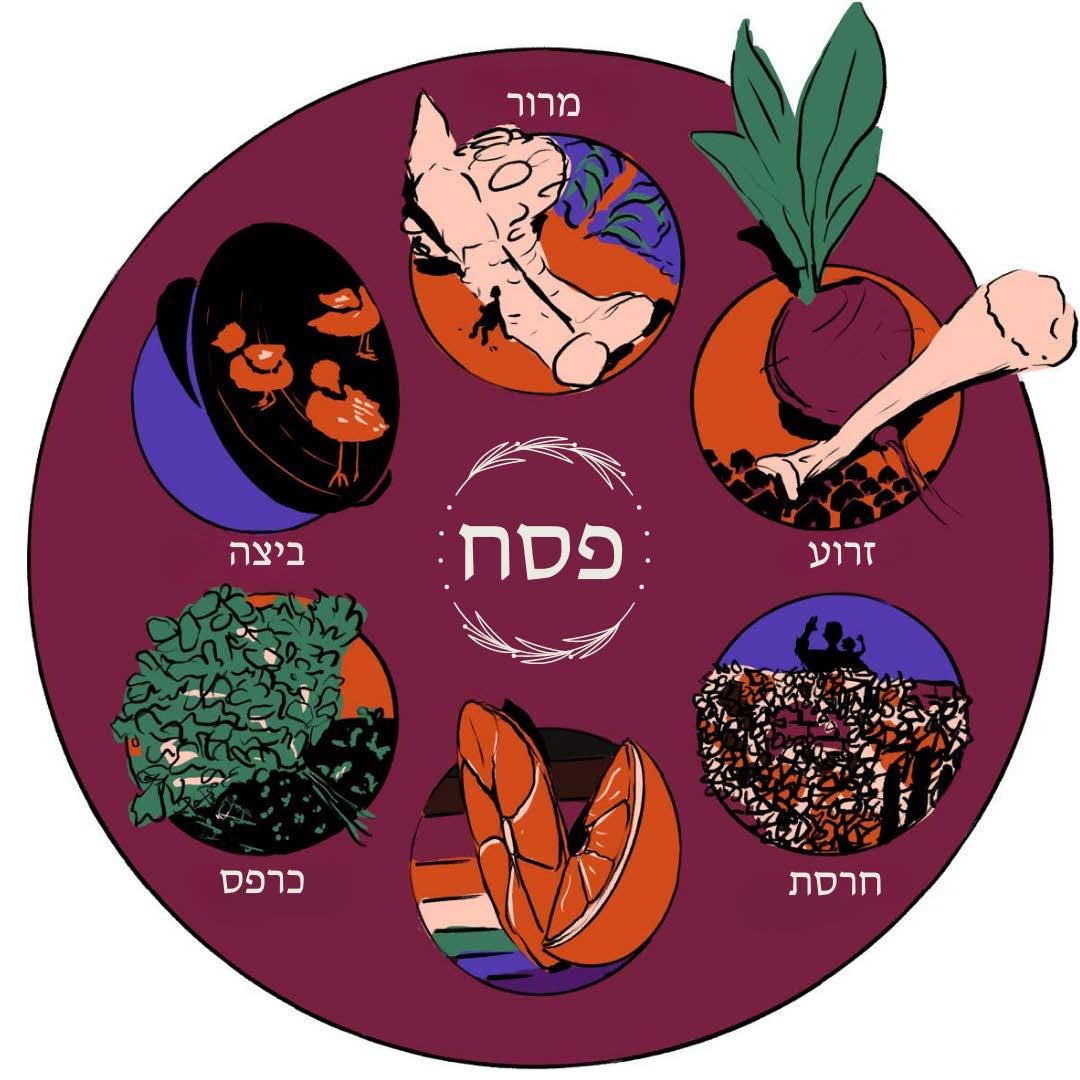
A Compilation of Materials found in:
Different from All Other Nights: a Queer Passover Haggadah, Bronfman Center 2013
Ma Nishtana: a Gay, Lesbian, Bisexual, Transgender, Queer, and Allied Haggadah 2005
Utah Pride Haggadah 2020
Lab/Shul SAYder 2020
Compiled by: Rafi Daugherty, 2017
Queer Liberation Haggadah 2019
Love and Justice Haggadah 2003
The Velveteen Rabbi’s Haggadah for Pesach
Assorted texts and sources as noted
Compiled by: Rafi Daugherty, 2017
Updated by: Jase Schwartz, 2021
Updated by: the Pride Seder Committee 2022
"So the people took their dough before it was leavened, their kneading bowls wrapped in their cloaks upon their shoulders." —Exodus 12:34 You’ll need to travel light. Take what you can carry: a book, a poem, a battered tin cup, your child strapped to your chest, clutching your necklace in one hot possessive fist.
So the dough isn’t ready. So your heart isn't ready. You haven’t said goodbye to the places where you hid as a child, to the friends who aren’t interested in the journey, to the graves you’ve tended.
But if you wait until you feel fully ready you may never take the leap at all and Infinity is calling you forth out of this birth canal and into the future’s wide expanse.
Learn to improvise flat cakes without yeast. Learn to read new alphabets. Wear God like a cloak and stride forth with confidence.
You won’t know where you’re going but you have the words of our sages, the songs of our mothers, the inspiration wrapped in your kneading bowl. Trust that what you carry will sustain you and take the first step out the door.
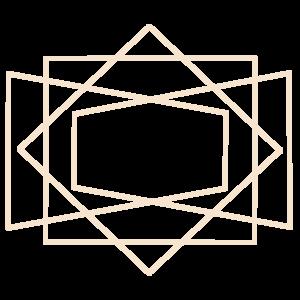
The Seder (Order)
שֵׁדַּק
Kadesh: Recitation of the Kiddush
FIRST CUP
ץַחְרוּ
סַפְּרַכּ
ץַחַי
דיִגַּמ
Urchatz: Washing of the Hands Karpas:
Greens
Yachatz: Dividing the Middle Matzah
Maggid: The Story
The Four Questions
The Four Children
The Ten Plagues
Dayenu
THE SECOND CUP
הָצְחָר
איִצֹומ
הָצַּמ
רֹורָמ
�ֵרֹוכּ
�ֵרֹוע ןַחְלֻשׁ
ךֵרָבּ
לֵּלַה
הָצְרִנ
Rachtzah: Washing of the Hands
Motzi: The Blessing for Bread Matzah:
The Blessing for Matzah Maror: Bitter Herbs
Korech: Hillel Sandwich
Shulchan Orech: The Meal
Barech: Blessing
THIRD CUP
ELIJAH’S CUP
Hallel: Praise
FOURTH CUP
Nirtzah: Acceptance

Candlelighting
As we bathe in the light of these candles, we remember all the candles we’ve lit as Jews, as LGBTQIA+ people, and as those who struggle for freedom. Shabbat candles. Yahrtzeit candles. Candles at AIDS vigils. Candles at Take Back the Night marches. Candles at Transgender Day of Rememberance. Candles for victims of racist violence. Candles for victims of war.
As we share in the light of these candles, we rededicate the flame each of us carries within, that small reflection of the Creator’s light that is ours to use as a beacon in our work of tikkun olam—repairing the world. We rededicate this small spark that we can use as a match to give light to the hopes and dreams of all people.
Bronfman, 2013B’ruchah at Yah Eloheinu
ruach ha-olam
asher kidshanu b’mitzvotav v’tzivanu l’hadlik ner shel yom tov
רֶׁשֲא בֺוט םֺוי לֶׁש רֵנ קיִלְדַהְל ּונָּוִצְו
A blessing: in the Presence of the Infinite, we treasure our sacred tradition as we ignite the healing light of this sacred night.
Lab/Shul SAYder 2020Twilight People
Between sunset and nightfall is the period defined as twilight, a time period with laws and rules of its own. chabad.org
As the sun sinks and the colors of the day turn, we offer a blessing for the twilight, for twilight is neither day nor night, but in-between. We are all twilight people. We can never be fully labeled or defined. We are many identities and loves, many genders and none. We are in between roles, at the intersection of histories, or between place and place. We are crisscrossed paths of memory and destination, streaks of light swirled together. We are neither day nor night. We are both, neither, and all.
May the sacred in-between of this evening suspend our certainties, soften our judgments, and widen our vision. May this in-between light illuminate our way to the God who transcends all categories and definitions. May the in-between people who have come to pray be lifted up into this twilight. We cannot always define; we can always say a blessing. Blessed are You, God of all, who brings on the twilight.
Rabbi Reuben ZellmanBaruch atah Adonai Eloheinu ruach ha-olam
meshaneh ha-briyot
Blessed are You, Eternal our God, spirit of the universe, who has made all beings Different.

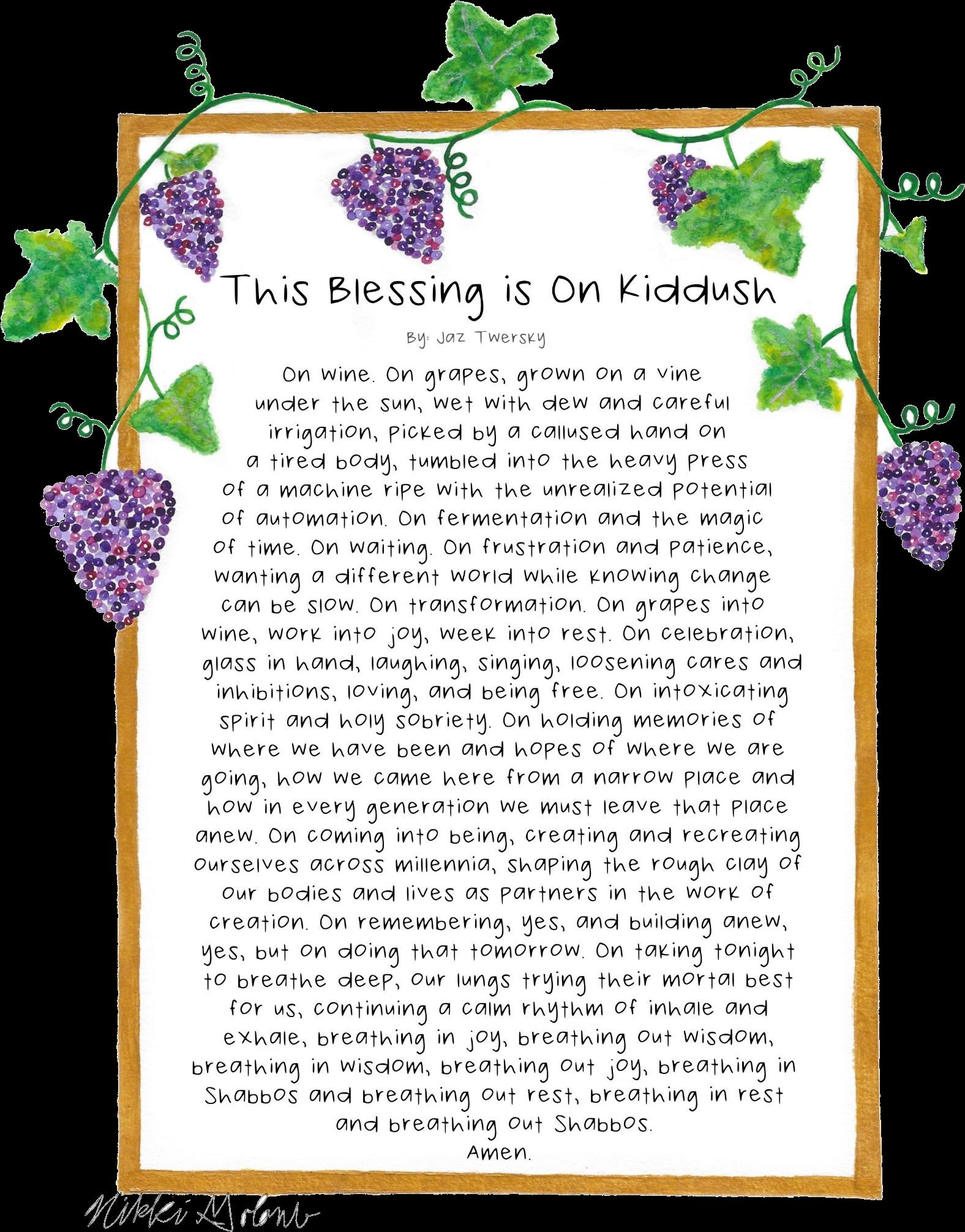

The First Cup “I will bring you out from the oppression...”
Alcohol plays an important role in nearly every special occasion in Jewish life, from Friday night kiddush to Purim revelry, from bris ceremonies to weddings. Wine in particular is used to celebrate because it “gladdens the hearts of men,” (Psalm 104:15) and therefore allows us to fulfill the mitzvah to rejoice in Shabbat and the holidays Hashem has given us.
For some of us, however, drinking wine or other alcoholic beverages isn’t an expression of joy, but of desperation. For some Jews who struggle with alcohol use, drinking four cups of wine at the seder could be as dangerous as someone in recovery from an eating disorder attempting to fast on Yom Kippur. Many Jews, whatever their relationship to alcohol, choose to replace Passover wine with grape juice or some other beverage for their health, safety, or sobriety, or because they simply don’t like wine.
If alcohol use is a Jew’s personal Mitzrayim, we must help them free themselves by providing a supportive environment where they can participate in the seder on their own terms without judgment. To pressure them into drinking is to put a stumbling block before them on their road to liberation. For those of us who do consume alcohol, let us drink the four cups of wine not merely out of obligation, but because we want to drink. And for those of us who don’t drink, let us rejoice in not drinking.
Min Ha-Meitzar: An Abolitionist Haggadah from the Narrow Place by Noraa Kaplan
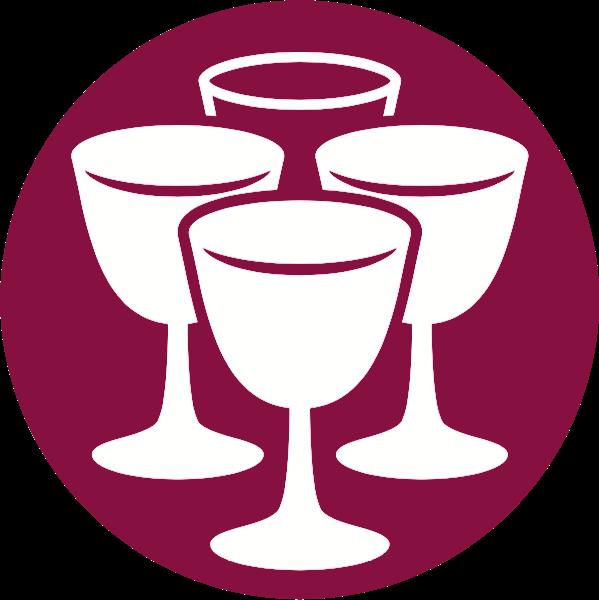
B’ruchah At Yah Eloheinu ruach ha-olam boreit p’ri ha-gafen.
Blessed are You, Eternal our God spirit of the universe who creates the fruit of the vine.

We are humans relearning to wash our hands.
Washing our hands is an act of love Washing our hands is an act of care Washing our hands helps us return to ourselves by washing away what does not serve. – Dori Midnight
Use water bowls, wet towels, or hand sanitizer. Soap not ritually required here.
We invite to our Seder Miriam the Prophetess who saved her baby brother Moses from drowning in the waters of the Nile, who taught us the song of liberation at the Sea of Reeds, who nourished our thirst in the wilderness and who left us with a healing blessing that is also sung. May we all be our siblings’ keepers always. We raise this Cup of Miriam as we honor the water of life.
Lab/Shul SAYder 2020Karpas Greens
The Difference of Karpas by Alex Weissman
The karpas, the green vegetable, is the first part of the seder that makes this night different from all other nights. So far, the first glass of wine and the hand washing, though significant, do not serve to mark any sort of difference; they are regular parts of meals. The karpas, however, is not. As a night marked by difference, that difference starts now. Tonight, we celebrate difference with the karpas. Here, difference brings us hope, joy, and renewed life.
We also know that with difference can come pain and tears. We have shed these tears ourselves and we have caused others to shed tears. Some say we dip the karpas in salt water to remind ourselves of Joseph, whose brothers sold him into slavery and then dipped his fabulous, technicolor dream coat into blood to bring back to their father, Jacob. Difference can also be dangerous.
Tonight, we dip the karpas into salt water, and as we taste it, we taste both the fresh, celebratory hope of difference and the painful blood and tears that have come with it.
B’ruchah at Yah Eloheynu ruach ha-olam boreit p'ri ha'adamah.
Blessed are You, Eternal our God, spirit of the universe, creator of the fruit of the earth.
www.ritualwell.org/ritual/difference-karpas

Reader: The breaking of the matzah reflects the struggle of dual identity most LGBTQIA+ Jewish individuals face. When we are not free to live as we are, we are often compelled to put on a mask, dividing our Jewish selves and LGBTQIA+ selves, our public selves and our private selves, and creating a rift we often navigate in silence. Just as we hide the afikomen, we hide parts of ourselves, compartmentalizing our lives in order to survive.
God too hides from us.
Silently, break the middle matzah. Set the larger piece as the afikoman and wrap it in a napkin. The smaller piece is saved for the hamotzi.
-Ma Nishtana,2005
Reader: Some do not get the chance to rise and spread out like golden loaves of challah, filled with sweet raisins and crowned with shiny braids. Rushed, neglected, not kneaded by caring hands, we grow up afraid that any touch may cause a break. There are some ingredients we never receive. Tonight, let us bless our cracked surfaces and sharp edges, unafraid to see our brittleness and brave enough to see our beauty. Reaching for wholeness, let us piece together the parts of ourselves we have found, and honor all that is still hidden.
Haggadah compiled by Rachel Timoner Source: Love and Justice Haggadah 2003
The breaking of the matzah reflects the words of the Chassidic Kotzker Rebbe: There is nothing more whole than a broken heart. If your own suffering does not serve to unite you with the suffering of others, if your own imprisonment does not join you with others in prison, if you in your smallness remain alone, then your pain will have been for naught.
The Jewish Organizing Initiative Haggadah- April 1999
All assembled: This is the bread of affliction, which our ancestors ate in the land of Egypt. Let all who are hungry come and eat. Let all who are in need, come and celebrate Passover. Today, we are here. Next year, in the land of Israel. Today, we are slaves. Next year, we will be free.
Ma
Nishtana, 2005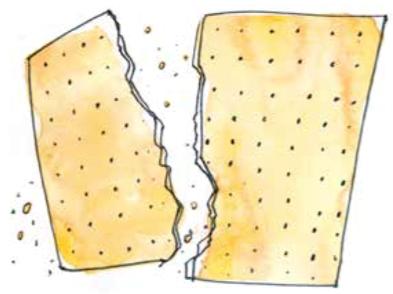

Maggid: The Story
The Four Questions
Why is this night different from all other nights?
1. On all other nights we eat either chametz (leaven) or matzah, but tonight we eat only matzah!
2. On all other nights we eat any vegetables, bitter or not bitter, but tonight we eat only bitter vegetables!
3. On all other nights we do not have to dip our food even once, but tonight we dip twice!
4. On all other nights we sit either straight or we recline, but tonight we all recline!
Mah nishtanah, ha-laylah ha-zeh, mi-kol haleylot? תֹולילַה לכִמ ה"ּזַה הָלְילַה הנת ְׁ שִּנ הַמ ,
She-b'khol ha-leylot 'eyn 'anu matbilin 'afilu pa`am 'achat, ha-laylah ha-zeh, shtey p`amim!
She-b'khol ha-leylot 'anu 'okhlin chameytz u-matzah, ha-laylah ha-zeh, kulo matzah!
She-b'khol ha-leylot 'anu 'okhlin sh'ar y'rakot, halaylah ha-zeh, maror!
She-b'khol ha-leylot 'anu 'okhlin ushotin beyn yoshvin u-veyn m'subin, ha-laylah ha-zeh, kulanu m'subin!
1 םַעפ ּוליִפֲא ןיִליִּבְטַמ ּונָא ןיֵא תֹולילַה לָכְּב ֶׁ ש םיִמָעְפ ית ְׁ ש הֶּזַה הָלְילַה תָחֶא ,
2 הצַמּו ץֵמָח ןיִלְכֹוא ּונָא תֹולילַה לָכְּב ֶׁ ש הצַמ ֹוּלכ הֶּזַה הָלְילַה ,
3 הָלְילַה תֹוקָרְי רָא ְׁ ש ןיִלְכֹוא ּונָא תֹולילַה לָכְּב ֶׁ ש רֹורָמ הֶּזַה ,
4 ןיִב ְׁ שֹוי ןיב ןיתושו ןיִלְכֹוא ּונָא תֹולילַה לָכְּב ֶׁ ש ןיִּבסְמ ּונלכ הֶּזַה הָלְילַה ןיִּבסְמ ןיֵבּו ,
Reader: How are we, as an LGBTQIA+ community, different from all other people — and how are we the same?
1. The Israelites were willing to adapt to eating unleavened bread in order to gain their freedom. How have you adapted to any challenges you may have encountered, either as a Jew or as an LGBTQIA+ person, and what have you learned from that experience?
2. The Maror remind us of the bitterness of slavery in Egypt. How can we be reminded of the lives and struggles of LGBTQIA+ people before us, and how can the stories of their lives help us today?
3. The second dip, into charoset, is to remind us there is sweetness even in bitter times. How do we sweeten the bitterness of inequality for ourselves? By finding community? Seeking allies? Taking action?
4. Reclining while eating is a sign of luxury and freedom. Even as we enjoy some freedoms, how can we become better allies to other marginalized groups, both within and outside the LGBTQIA+ community?
adapted by Rowan Fae fromPassover Questions
for LGBTQ Families by Dana Rudolph
Maggid: The Story
Three conclusions from the Exodus story:
The Story of Exodus
1)Wherever you live, it is probably Mitzrayim.
2)There is a better place, a promised land.
3)The way to this promised land is through the wilderness there is no way to get there except by joining together and marching
-Michael Waltzer, Exodus and RevolutionThe Four Queer/Trans Jews
The queer/trans Jew is in search of a meaningful, holy past through our texts, traditions, and people. Ma heh omereh? What do they say?
“Why didn’t the Torah count, or acknowledge women and trans people among the ‘600,000 men on foot, aside from children,’ who came out of Egypt? And why did Moses say at Sinai, ‘Go not near a woman,’ addressing only men, as if preparation for Revelation was not meant for us, as well?”
Because we know that Jewish memory is essential to our identity, we teach them that history is made up by those who tell the tale. If the original Torah did not name and count us as women, trans people and those whose gender we do not know the words for now, it is up to us to fill the empty spaces left in our holy texts. We have the power to tell our own story, take our own census and create our own values. Jewish history is meant for us as well.
And the queer/trans Jew who wants to erase our differences and assimilate? Ma heh omereh? What do they say?
“Why do we keep pushing these questions into every text? Why make us so noticeable? So visible? Why are these issues so important to you? Don’t you want to blend in?”
They say: “To you,” instead of “not to me”. They forget the struggles of our ancestors, both Jewish and non-Jewish. Perhaps we’ve been here at some point or another too, what did we need to find the beauty in our divergence? Invite them to our seder tables. Let them see the pleasure and joy at living outside of cisheteronormativity, the wonder of appreciating queer and trans bodies for all of our diversity and divergence. The blessings of our resistance.
And the queer/trans Jew who does not know that we have a place at the table? Ma heh omereh? What do they say?
“What is this?”
Because they don’t yet know that their question is, in itself, a part of the seder tradition, show them that the Haggadah is a conversation about liberation, and their insights and questions belong here, in our texts and seder plates. Their wonder and curiosity, their frustration and confusion, in equal parts belong right here, nestled between maror and charoset.
And the queer/trans Jew who asks no questions? Who is scared to exist? Isolated from themselves and others?
We must say to them, “Your questions, when they come and in whatever form, will liberate you from Egypt. This is how it is and how it has always been with your queer and Jewish ancestors. For every moment we choose to survive, to look towards unanswered truths, we move a half-step closer to liberation. Even with no questions, you have a seat at our table, you deserve to know the fullness of your ancestors, of Shifra and Puah, of Joseph, of Ruth and Naomi and Judith, of Marsha, Sylvia, Leslie, and so many more who lived both named and unnamed in their truth and power. Come to the seder table with us, you will always have a seat.”
adapted from “the Four Daughters” by Tamara Cohen, Rabbi Sue Levi Elwell and Ronnie Horn. Adapted and used with loving gratitude. The Hebrew used in this text is in the style of Lior Gross and Eyal Rivlin of the Nonbinary Hebrew Project

Maggid: The Story
The Recitation of the Ten Plagues
A full cup of wine is a symbol of joy. Because the Egyptians suffered under the ten plagues, our joy is diminished, calling on us to spill a drop of wine from our glass for each plague as it is said.
Blood Frogs
Lice
Wild Animals
Pestilence
Boils
Hail
Locusts
Darkness
Death of the Firstborn
Dam
Tzfardeiya
Kinim
Arov
Dever
Shechin
Barad
Arbeh
Choshech
Makat B’chorot
ֵעְדֵרְפצ
םיִנִכ
בֹורָע
ֶרֶבד
ןיִחְש
דרָב
הֶבְרַא
ךֶשח
תֹורֹוכְב
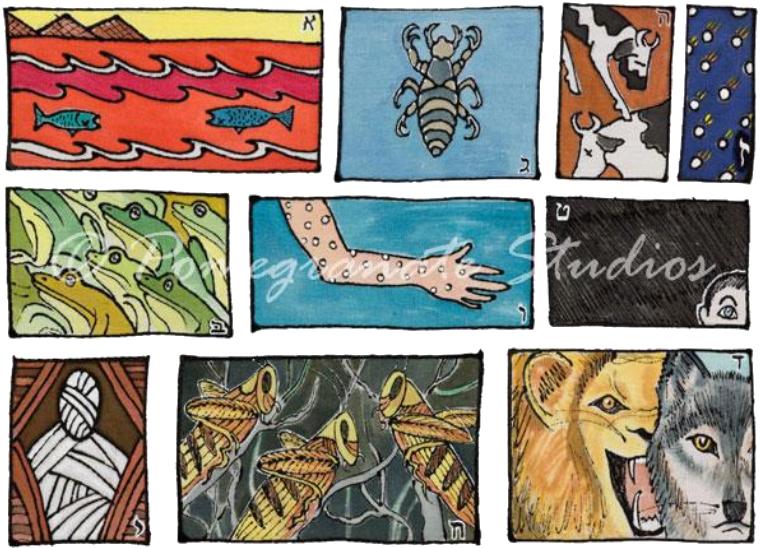

Maggid: The Story
Blood:
Our Commitments
We commit to clean water for all people, and we commit to an ample blood supply for those who need it.
Frogs:
Frogs symbolize the trauma of too much for too long – a life out-of-balance. We commit to lives in balance, where our bodies, our souls, and our environment are respected and nurtured.
Lice:
Pharaoh’s magicians saw the hand of God in the plague of lice. We commit to recognizing Divinity wherever it resides – no matter how biting.
Wild Beasts:
We commit to a sense of connection with all people, even those who see our lives and loves as wrong.
Cattle Plague:
We commit to food security for all people.
Boils:
We commit to looking past outward appearance of affliction – of depression, mental illness, and cognitive differences – to the divine soul within each person.
Hail:
We commit to finding shelter for the most vulnerable among us, so that when tragedy strikes they have protection.
Locusts:
We commit to survive and to thrive. We will carry the names of those who died before their times as seals upon our hearts and we will strive to make them proud of our lives.
Darkness:
We commit to turning the darkness of fear and ignorance into the warm, rich darkness of a summer’s night where everyone is known and loved.
Death of the First-born:
We commit to protecting lives – to a world where no one is unsafe in their own home – to a world where those who are in pain know that there are open arms ready to catch them and waiting to hold them.
Utah Pride Haggadah 2020

Dayenu: It Would Have Been Enough
What does this mean, “It would have been enough”? Surely no one of these would indeed have been enough for us. Dayenu means to celebrate each step toward freedom as if it were enough, then to start out on the next step. It means that if we reject each step because it is not the whole liberation, we will never be able to achieve the whole liberation. It means to sing each verse as if it were the whole song—and then sing the next verse.
-From Rabbi Rachel Barenblat’s The Velveteen Rabbi’s Haggadah for Pesach Dayenu
If God had brought us out from Egypt, — Dayenu, it would have been enough!
If God had split the sea for us, — Dayenu, it would have been enough!
If God had given us Shabbat, — Dayenu, it would have been enough!
If God had given us the Torah, — Dayenu, it would have been enough!
Ilu hotzianu mimitzrayim, dayenu!
Ilu kara lanu et hayam, dayenu!
Ilu natan lanu et hashabbat, dayenu!
Ilu natan lanu et hatorah, dayenu!
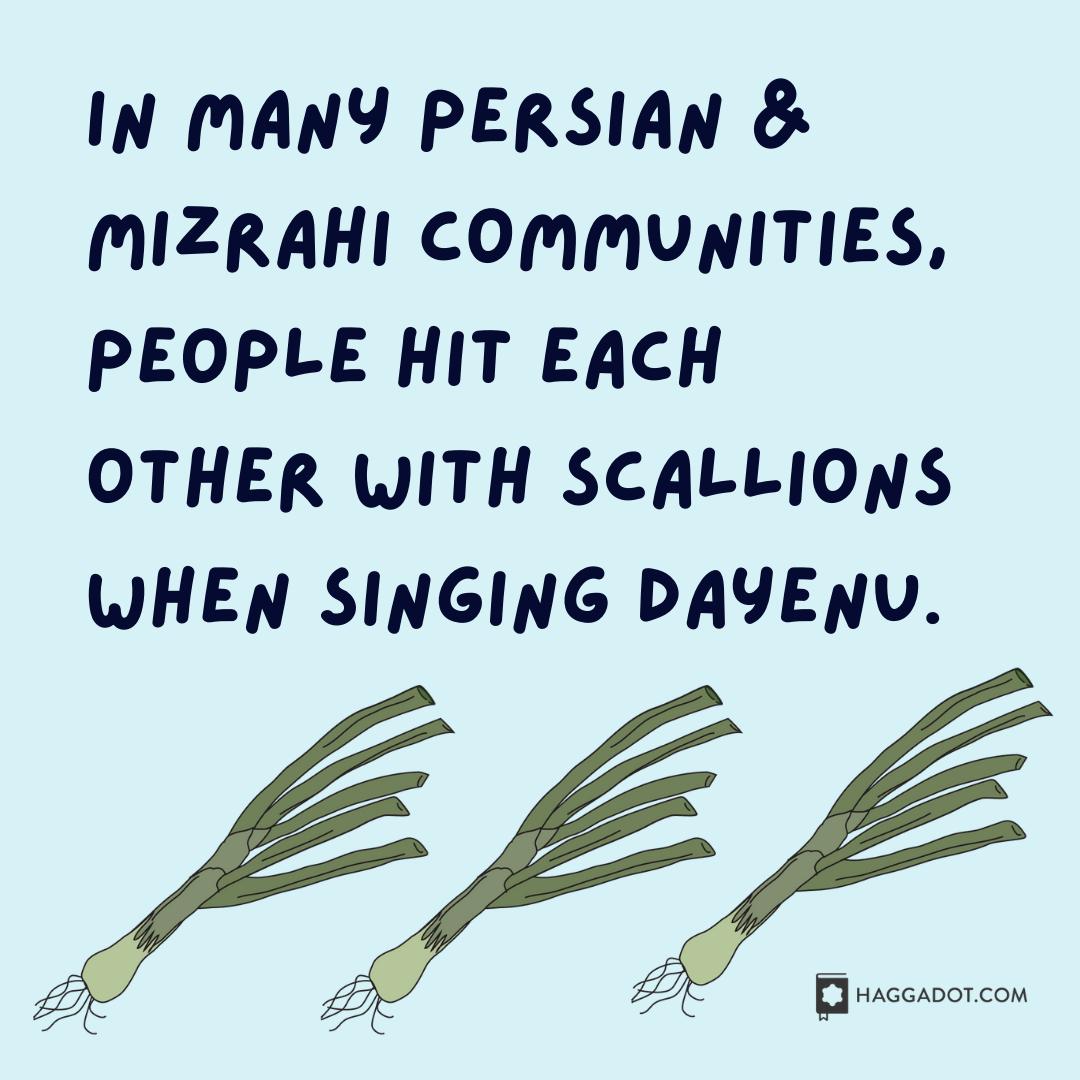

םִיָרְצמִמ ּונָאיִצֹוה ּוּלִא ּוניַּד םיַה תֶא ּונָל עַרָק ּוּלִא ּוניַּד
תבשַה תֶא ּונָל ןַתָנ ּוּלִא ּוניַּד
הָרֹוּתַה תֶא ּונָל ןַתָנ ּוּלִא ּוניַּד
Maggid: The Story
Trans Lo Dayenu
We were instrumental in the Compton Riots in San Francisco.
It was not enough.
We were leaders in the Stonewall Riots in New York.
It was not enough.
We supported our gay and lesbian brothers and sisters in the fight for gay & lesbian rights.
It was not enough.
We fought for equal marriage.
It was not enough.
We fought to be allowed to medically transition if we were not going to match stereotypes of what it means to be a man or woman.
It was not enough.
We fought to be allowed to remain married through our transition and not be forced to get a divorce.
It was not enough.
We fought to be allowed medical transition if we were not going to have genital surgery.
It was not enough.
We fought to be allowed medical transition if we were going to be gay, lesbian, or bisexual. It was not enough.
We fought against gatekeeping and doctors, psychologists, and other health providers dictating what was best for us.
It was not enough.
We fight for our voices to be heard in LGBT community and not be drowned out by the voices of gay and lesbian cis people.
It is not enough.
We fight for a day when people of all genders will be accepted, included, and affirmed as who they are and have access to the supports they need to be their true selves.
Then it will be enough.
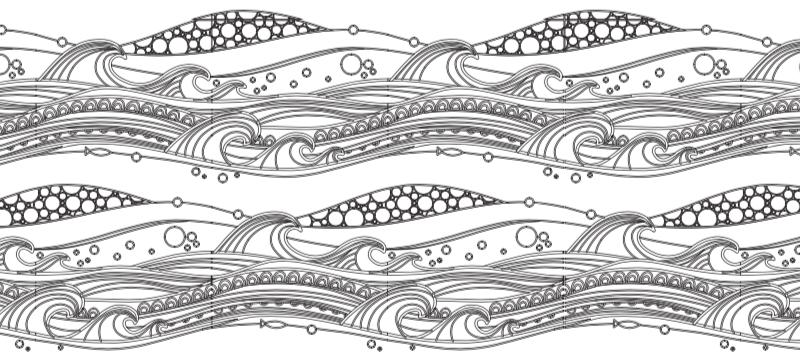

Maggid: The Story
The Second Cup “I will free you from slavery.”
ּוניֵהֹלֱא הָי ְתַא הָכּורְּב םָלֺועָה ַחּור
ןֶפָגַה יִרְפ תאֵרֺוּב
B’ruchah At Yah Eloheinu
Ruach ha-olam
boreit p’ri ha-gafen.
Blessed are You, Eternal our God spirit of the universe who creates the fruit of the vine.

Rachtzah Washing of the Hands הָצְחָר
As we prepare to eat our feast, we wash our hands again, with water and a blessing. A drop: in the Presence of the Infinite, we treasure our sacred tradition immersing our hands in the waters of life. To make this moment special, you could use a pitcher or cup to pour water over your hands or the hands of someone sitting with you.
Lab/Shul SAYder 2020
Baruch atah Adonai Eloheinu
ruach ha’olam
asher kidshanu b’mitzvotav v’tzivanu al n’tilat yadayim
Blessed are You, Eternal our God spirit of the universe who makes us holy through mitzvot, and commands us concerning the washing of the hands.

ּוניֵהֹלֱא ָיְי ָּתַא ךּורָּב
םָלֺועָה ַחּור
וָתֺוְצִמְּב ּונָׁשְדִק רֶׁשֲא
םִיָדַי תַליִטְנ לַע ּונָּוִצְו
Reader: All two and a half matzot are raised and the following two blessings are recited. Eat the matzah immediately (leaving a little aside for the Korech), while seated and reclining on the left side. While eating this bread of affliction, we remind ourselves what we're fighting for. Just like the bland food on our plate, a world without true queer liberation (and liberation of all kinds) is a bland, boring one. We are fighting for a world that's exciting and colorful, a world where people of all kinds are able to take pride in themselves.
Motzi
B’ruchah at Yah Eloheinu
The Blessing for Bread איִצֺומ
ruach ha-olam ha-motzi lechem min ha-aretz.
Blessed is our God spirit of the universe who brings forth bread from the earth.
Matzah The Blessing for Matzah הָצַמ
Baruch atah Adonai Eloheinu
ruach ha-olam
asher kidshanu b'mitzvotav v'tzivanu al achilat matzah.
Blessed are You, Eternal our God spirit of the universe who has makes us holy through mitzvot and commands us to eat unleavened bread.
Maror Bitter Herbs
B’ruchah at Yah Eloheinu ruach ha-olam, asher kidshanu b’mitzvotav v’tzivanu al achilat maror.
Blessed are You, Eternal our God spirit of the universe who makes us holy through mitzvot, and commands us to eat bitter herbs.

יֵהֹלֱא ָיְי ָּתַא ךּורָּב ּונ
םָלֺועָה ַחּור
וָתֺוְצִמְּב ּונָׁשְדִק רֶׁשֲא
הַצַמ תַליִכֲא לַע ּונָּוִצְו
רֺורָמ
ּוניֵהֹלֱא הָי ְתַא הָכּורְּב םָלֺועָה ַחּור
וָתֺוְצִמְּב ּונָׁשְדִק רֶׁשֲא
רֺורָמ תַליִכֲא לַע ּונָּוִצְו
We make a sandwich with matzah, maror, and charoset. Perhaps this sandwich reminds us of Hillel’s practice in the days of the Temple, when he would fulfill the Torah’s statement—that the people Israel would eat the Passover sacrifice with unleavened bread and bitter herbs.
Perhaps, too, it reminds us of aspects of this very community, or of ourselves—bitter and cracked surfaces that give way to the sharp, fresh evidence of our labors in the world, tempered with sweetness combined from many sources. We are bitter and sweet, stubborn and giving. It is with our diversity that we begin our festive meal.
Bronfman, 2013Shulchan Orech The Meal ךֵרֺוע ןָחְלֻׁש
Traditionally this is the place in the Seder where the meal is served.
Birkat HaMazon Blessing After The Meal
We praise God, Spirit of the Universe, whose goodness sustains the world. You are the origin of love and compassion, the source of bread for all, food for everyone. As it says in the Torah: When you have eaten and are satisfied we thank you for the earth and for its sustenance. Renew our spiritual center in our time. May the source of peace grant peace to us, to the Jewish people, and to the entire world. Amen.
ןֹוזָמַּה
תֶא ןָּזַה םָלוֹעָה �ֶלֶמ וּניֵה�ֱא ָיְי הָּתַא �וּרָּב אוּה ,םיִמֲחַרְבוּ דֶסֶחְּב ןֵחְּב וֹבוּטְּב וֹלֻּּכ םָלוֹעָה וֹבוּטְבוּ וֹדְּסַח םָלוֹעְל יִּכ רָׂשָּב-לָכְל םֶחֶל ןֵתֹנ ןוֹזָמ וּנָל רַסְחֶי לַאְו וּנָל רַסָח אֹל דיִמָּת לוֹדָּגַה ןָז לֵא אוּה יִּכ לוֹדָּגַה וֹמְׁש רוּבֲﬠַּב דֶﬠָו םָלוֹעְל -לָכְל ןוֹזָמ ןיִכֵמוּ לֹּכַל ביִטֵמוּ לֹּכַל סֵנְרַפְמוּ לֹּכַה תֶא ןָּזַה ָיְי הָּתַא �וּרָּב אָרָּב רֶׁשֲא ויָתוֹיִּרְּב
Baruch atah Adonai, Eloheinu melech ha’olam, hazan et ha’olam kulo b’tuvo b’chen b’chesed w’rachamin. Hu noten lechem l’chol basar ki l’olam chasdo. Uv’tuvo hagadol tamid lo chasar lanu v’al yech’sar lanu mason l’olam va’ed. Ba’avur sh’mo hagadol ki hu zan um’farnes lakol umetiv lakol umechin mazon l’chol b’riyotav asher bara. Baruch atah Adonai hazan et hakol.
Oseh shalom bimromav hu ya’aseh shalom aleinu v’al kol Yisraeil, v’imru, v’imru, Amein
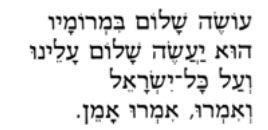
May the One who makes peace in the supernal, grant peace to us, and to all the world. Amen.

Barech: Blessing
Close your eyes for a moment for gratitude. What nourished you tonight? Share favorite moments and flavors with your table.
Lab/Shul SAYder 2020The Third Cup “I will liberate you with an outstretched arm…”

Elijah's Cup?
B’ruchah At Yah Eloheinu Ruach ha-olam boreit p’ri ha-gafen.
Blessed are You, Eternal our God spirit of the universe who creates the fruit of the vine.
This cup is not for Elijah. Elijah knows he is welcome here. We welcome him in our traditional seders, and we sing Eliyahu Hanavi throughout the year. This cup is for the queer Jew who has not yet found this community. They may not know they are queer yet. They may not know that there are out and proud and healthy queer Jews. They may know we exist, but haven’t build up the courage to attend an LGBTQ seder yet. So this cup is for them. Let all who are hungry come and eat, and let our doors always be open for those that need this community.
by Galia Godel
Baruch atah Adonai Eloheinu ruach ha-olam she’asani b’tzalmo.
Blessed are You, Eternal our God spirit of the universe who made me in God’s image.
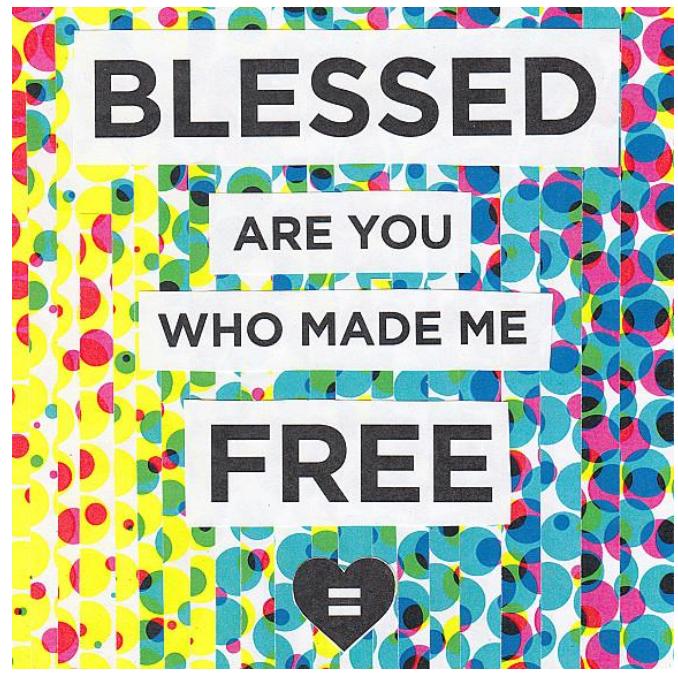

The Fourth Cup “I will claim you for me as a people, and I will be your God.”
ּוניֵהֹלֱא הָי ְתַא הָכּורְּב םָלֺועָה ַחּור ןֶפָגַה יִרְפ תאֵרֺוּב
B’ruchah At Yah Eloheinu Ruach ha-olam boreit p’ri ha-gafen.
Blessed are You, Eternal our God spirit of the universe who creates the fruit of the vine.

Nirtzah Acceptance הָצְרִנ
Our coming together in celebration blesses the sweetness of the fruit of the vine. Tonight we have completed a radical new work. We have told the story of our liberations and our doubled struggles as Jews and queers. We have talked, we have learned, we have questioned, we have eaten, and we have sung. We have grappled with difficult questions, and we know that these questions will continue to exist.
Traditionally the Seder closes with the wish that next year we be in Jerusalem, but for us the wish is more:
Next year may we live authentic, free, fulfilled lives along with all others on this planet.


